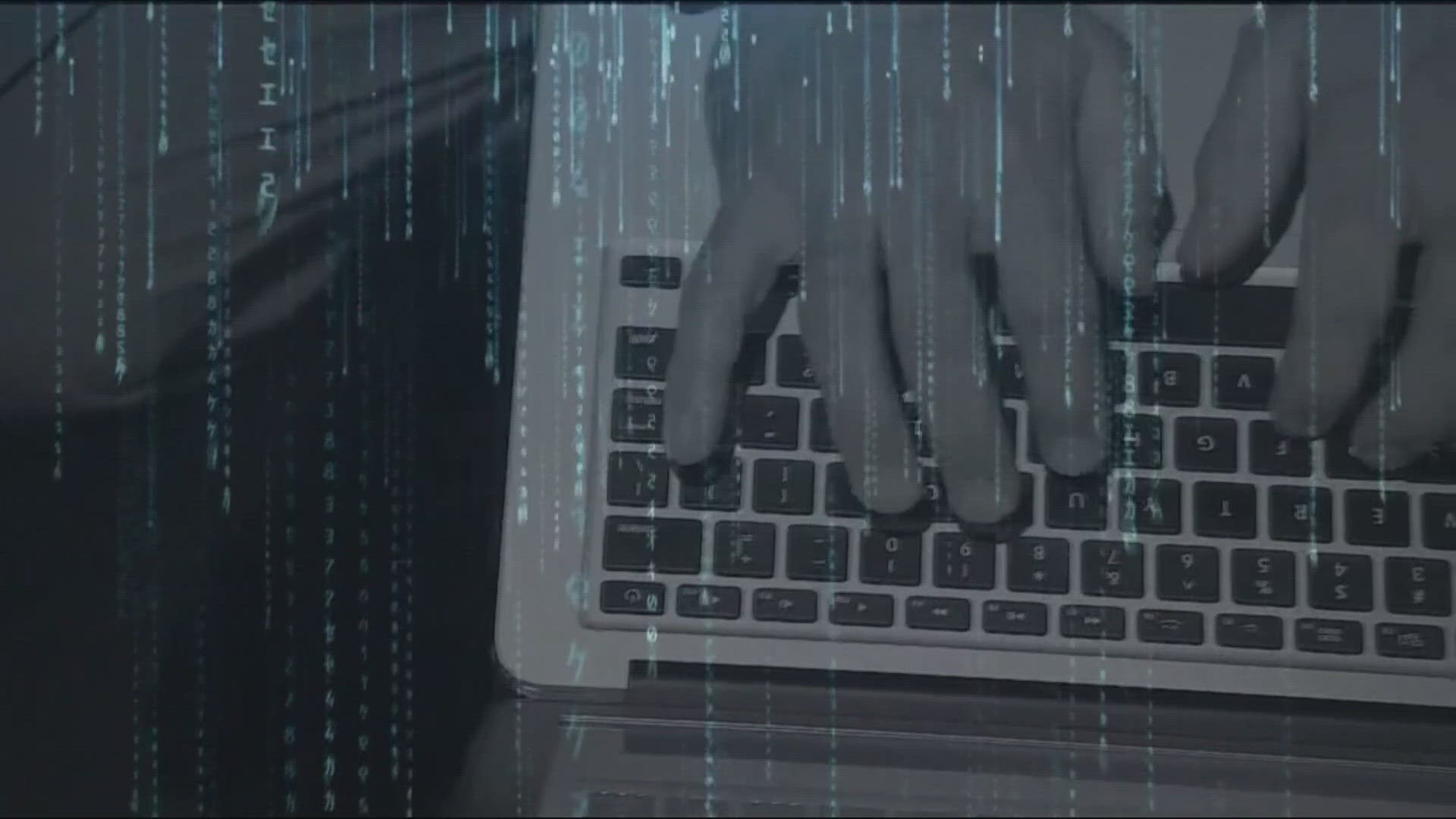PORTLAND, Ore. — So much is done online these days. People buy things from websites, and many of us do our banking through apps and store photos of our important documents, like passports, on our phones.
The last thing anyone wants is for someone with nefarious motives to access our personal information.
Big companies and agencies people regularly do business with are getting hacked, too. Last week, Oregon Driver and Motor Vehicle Services and the Oregon Department of Transportation announced they both got hit in a global cyberattack. It's possible 3.5 million Oregonians may have had personal information stolen.
Then this week, Umpqua Bank officials said the financial institution was targeted in the same attack, though they said there was no indication that customer data was compromised.
With so much talk of cyberattacks and concerns around identity theft, KGW spoke with Michael Bruemmer, vice president and head of Experian's Global Data Breach Resolution business. He said thousands of people get scammed every year.
"At Experian, we solve between 25,000 and 30,000 cases of identity theft every year," said Bruemmer.
So what can you do to protect yourself? Bruemmer said the most important thing is to monitor financial transactions.
"A lot of financial institutions allow you to have alerts set up for balance notices charges," he said.
Also, check your credit report. You're allowed a free one every year from each of the credit bureaus: Experian, Equifax and Transunion. Additionally, people can freeze their credit to help protect them from identity theft.
There are other ways of keeping your personal information safe as well.
"Make sure you update your home router or WiFi password," said Bruemmer.
He said people should not use public WiFi. In places like an airport, scammers can use a device to spoof public WiFi that’s being offered by making it look like a legitimate option. People not paying close enough attention may inadvertently choose to connect to the WiFi signal, exposing themselves to the risk of identity theft. Bruemmer also recommended shredding documents with personal information.
For shoppers who like to buy things online, Bruemmer said it’s a good idea to pay attention to the web address. Make sure you’re at the right site, make sure it has "https" in the web address and check to make sure the business is a legitimate one.
"I always say this: If the deal seems too good to be true, yes it is. And yes, they'll probably have some sort of scam to steal your identity. Same thing when using your phone," said Bruemmer. "Nowadays, especially with artificial intelligence, they could take a 30-second voice print of you and copy your voice and use it."
He said of the cases Experian solves every year, that type of scam occurs in less than 10% of cases. But he said there have been a number of people who have had bank or brokerage accounts opened on their behalf just by using voice technology. Bruemmer said people shouldn’t answer any phone calls from numbers they don’t recognize.
Once someone’s identity is stolen, it can be costly and time consuming to fix. Some people are stuck fighting fraud for years.
"If information is found on the dark web, nobody can remove it," Bruemmer said.
In addition to visiting the three credit bureaus’ websites and calling Exeperian’s free online fraud and identity theft guidance hotline, the Identity Theft Resource Center is also worth checking out.
The nonprofit has a website with a search engine that shows whether your e-mail or phone number has appeared on the dark web as a result of a data breach.

